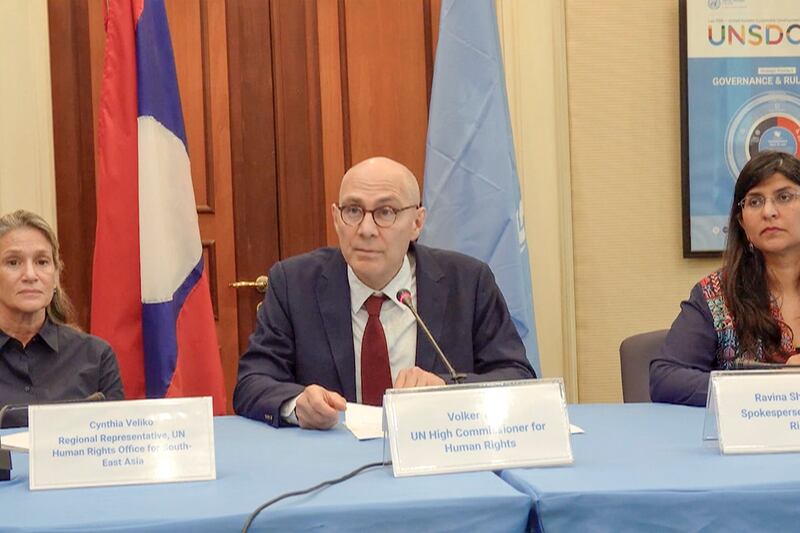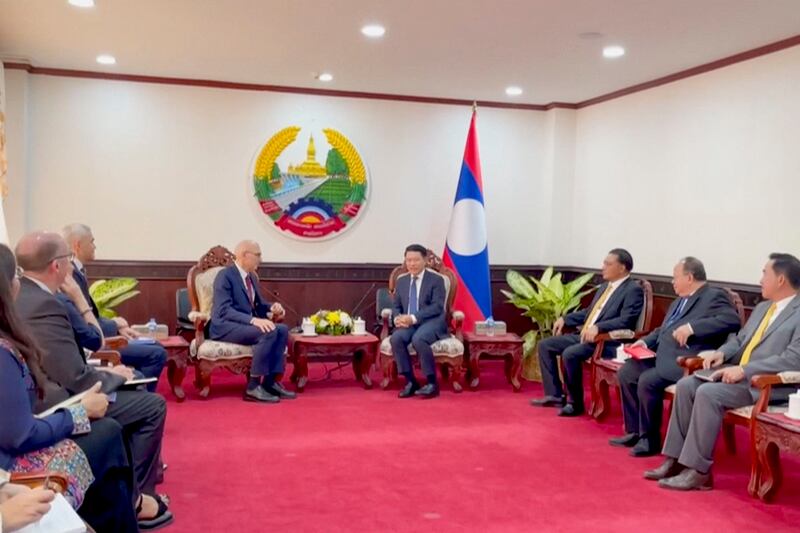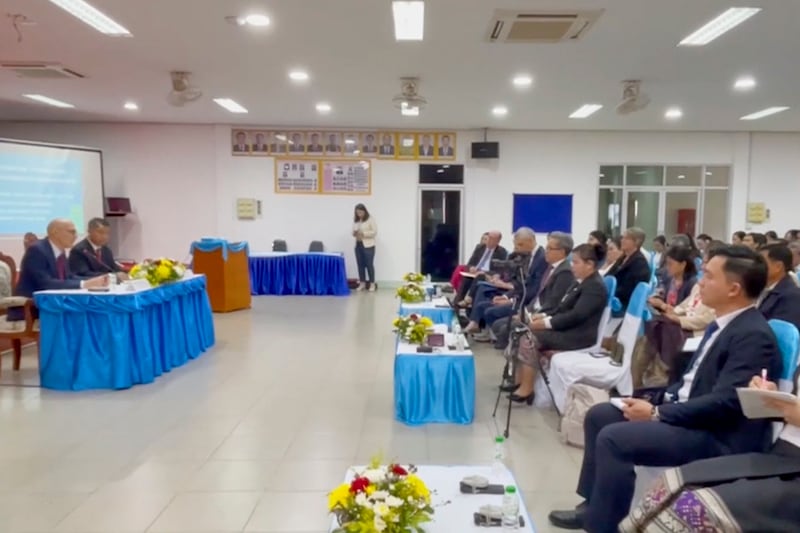The United Nations High Commissioner for Human Rights Volker Türk on Friday called on the government of Laos to ensure protections for human rights in the country’s budget allocations, saying that failure to do so will undermine development and increase inequality.
Türk made the comments following a brief visit to the Lao capital Vientiane – the first by a U.N. rights czar – where he met with Prime Minister Sonexay Siphandone and other senior officials to discuss the state of human rights in the impoverished nation, which is also this year’s chair of the Association of Southeast Asian Nations, or ASEAN.
Public debt is a “key challenge” facing Laos, he said, but cautioned that debt repayment “should not interfere with States’ human rights obligations to allocate the maximum available resources to the realization of economic and social rights.”

“It is against this background that I regret the declining public spending on social services, including social protection, health and education,” he said.
“Human rights need to be reflected in budget allocations. If a country does not invest sufficiently in education, health, equality and other essentials, this will result in a cascade of problems in society – scuppering development and increasing inequalities.”
Türk applauded the Lao government’s emphasis on developing the country, but urged leaders to integrate human rights to ensure it is sustainable.
“Human rights are not an à la carte menu to select from,” he said. “Sustainable development is intertwined with economic, social, cultural, civil and political rights, as well as the right to a healthy environment.”
Civil society key to addressing issues
Among the issues he called on Laos to address were child marriage, gender inequality and the impact of infrastructure projects on local communities, adding that the government’s ability to tackles such issues “depends profoundly on the meaningful participation of those most affected, and of civil society in all its diversity.”

“In the absence of a vibrant civic space, stagnation sets in, and corruption remains hidden,” he said. “Policies to address environmental concerns, development goals, human rights violations resulting from business and land projects – indeed, any issue – are intrinsically weakened.”
To that end, Türk highlighted the need for those who express their views on issues of public interest “to do so without fear.” He said the government must do more to protect those in civil society from intimidation, violence or judicial harassment.
He urged authorities to continue investigations into cases of forced disappearance, including that of Lao rural development expert and activist Sombath Somphone.

Sombath has not been seen or heard from since he was stopped in his jeep at a police checkpoint outside Vientiane on Dec. 15, 2012, forced into a white truck and driven away.
The Lao government has remained silent about the fate of the then 60-year-old Sombath, who had challenged massive land deals negotiated by the state that had left thousands of rural Lao villagers homeless with little compensation.
Among the improvements on human rights Türk observed during his visit were legislative reforms, including a ban on corporal punishment of children, and progress in addressing poverty, which he said had led to improvements in the living conditions of some segments of the population.
Edited by Malcolm Foster.
